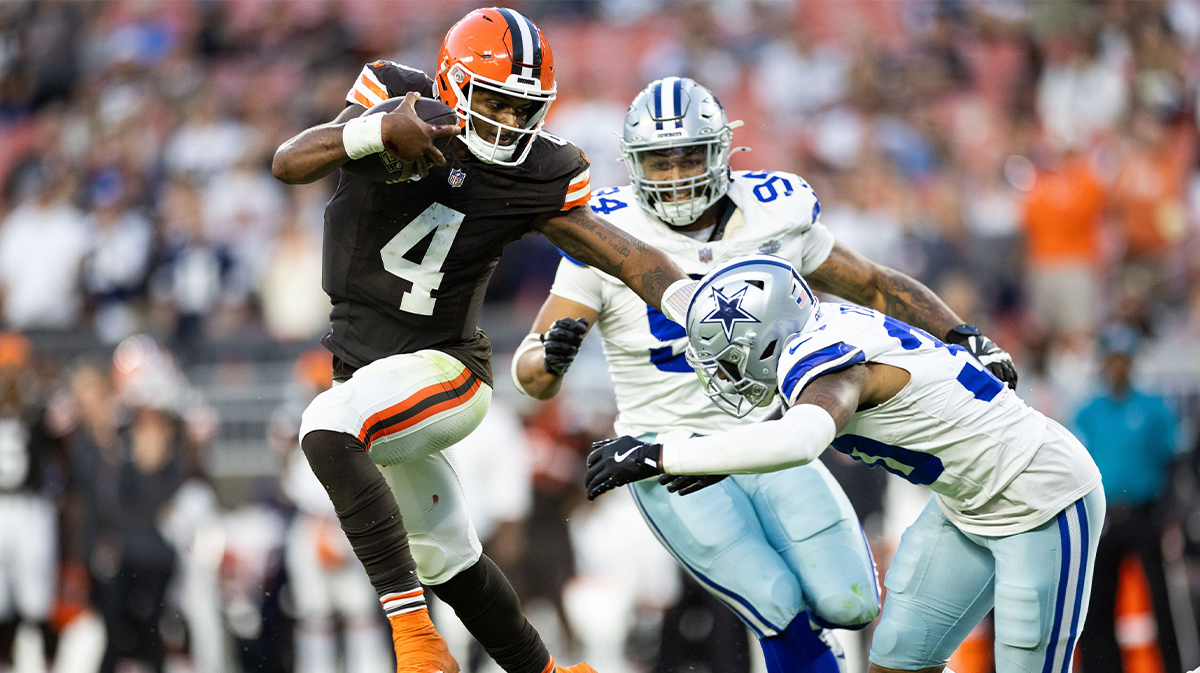In the 2024 season opener against the Dallas Cowboys, Cleveland Browns quarterback Deshaun Watson had a notable interaction with head coach Kevin Stefanski, highlighting tension and determination. Despite the coaching staff’s considerations to bench Watson towards the end of a blowout game, the quarterback made it clear he wasn’t ready to step aside.
The incident unfolded as the game drew to a close, with Stefanski and his coaching team evaluating the situation and contemplating a strategic change.
“We discussed taking out Deshaun Watson late in the game,” Stefanski revealed. The decision aimed to protect Watson from unnecessary risks in a game’s concluding phases or to give backup players some game experience. However, Watson had other plans.
Deshaun Watson struggles in Week 1

Watson, showing a firm resolve and competitiveness, expressed his desire to remain in the game, effectively waving off the benching plan. Even while the Browns were being blown out, his decision to stay on the field wasn’t just about personal tenacity but also spoke volumes about his leadership and commitment to the team.
However, Watson did not play well on Sunday afternoon, throwing for just 169 yards, one touchdown, and two interceptions. Suitable for a passer rating of 51.1.
This incident is particularly significant given Watson’s history and his journey back to starting quarterback. Since joining the Browns, Watson has been under immense pressure to perform and justify both his high-profile acquisition and his position on the team. His insistence on staying in the game could be seen as a statement of dedication to his role, his teammates, and fans.
Watson has been under scrutiny since the teams acquisition of the former Texans pro bowler. Fans have given mixed reviews on his output compared to the expectations set by his past achievements and the substantial investment made by the Browns. Each game serves as a critical examination of his ability to lead the team and navigate the high stakes of the NFL.
The decision to stay in the game also highlights Watson’s understanding of his role within the team dynamics. As the quarterback, his actions on and off the field contribute significantly to team morale and performance. In this instance, his choice to remain active in the game might have been intended to bolster team spirit and demonstrate resilience, qualities essential for any leader.
While the immediate implications of Watson’s insistence on playing are confined to that game, the broader impact on team strategy and player management will likely be observed as the season progresses. As the Browns look to bounce back next week at Jacksonville, the interaction between Deshaun Watson and Kevin Stefanski will be an interesting subplot to watch. How they manage these dynamics could have significant repercussions for their strategies and success in 2024.



















